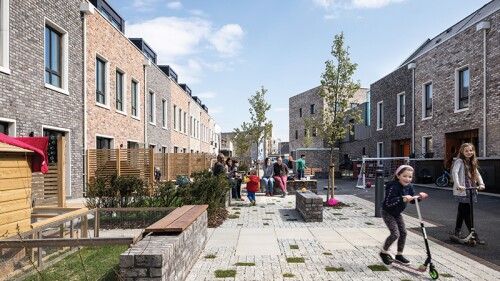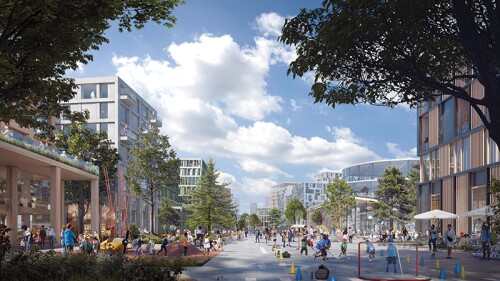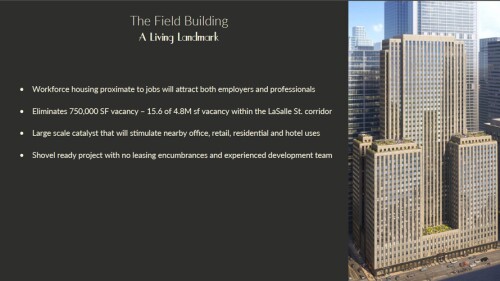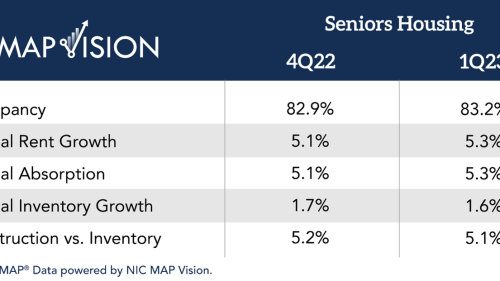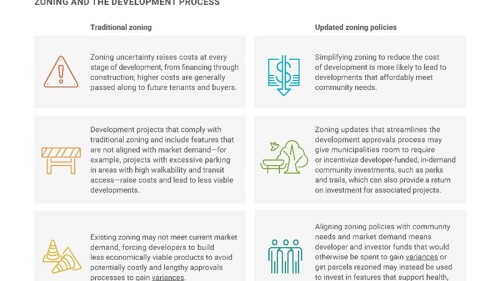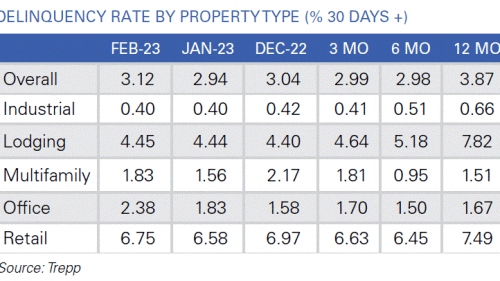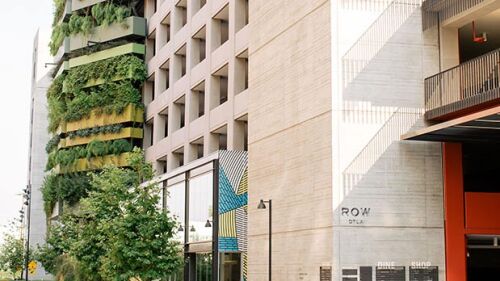<b>Equitable Development</b>
Engage equitable development stories to build understanding, spark innovation, and promote justice in real estate.
The Real Estate Economic Forecast, produced by the ULI Center for Real Estate Economics and Capital Markets, is based on a survey conducted in April 2023 of 41 economists and analysts at 37 leading real estate organizations. According to the survey, the U.S. economy will slow in 2023 and 2024, with recovery expected to begin in 2025. The real estate market will follow suit, with flat to negative results over the next two years, followed by mostly positive news in 2025.
Developers and buyers create new models for housing that hold the promise of a more environmentally friendly, connected, and multigenerational way of living.
A member of ULI Toronto describes the redevelopment of the Downsview Airport lands, representing an unprecedented opportunity: the chance to create a “city within a city,” a globally recognized, mixed-use urban community in the heart of one of the most vibrant and diverse metropolitan areas in North America.
When the Field Building on Chicago’s LaSalle Street opened in 1932, it was a technological and architectural marvel, with high-speed elevators, drinking fountains, and even air-conditioning, a first for the city. Nearly a century later, the 1.3-million-square-foot (120,774 sq m) Art Deco landmark is a pioneer of a different sort.
In March, ULI member leaders based in Shanghai, China, engaged in a discussion on how China’s real estate market has been recovering since end of the “zero COVID” policy in December.
The U.S. Army Corps of Engineers and the Texas General Land Office are mounting a $31 billion coastal resilience project on the Texas coast, the most expensive project ever led by the Corps and the largest coast management project ever.
The senior housing occupancy rate increased 0.3 percentage points from 82.9 percent in the fourth quarter of 2022 to 83.2 percent in the first quarter of 2023, according to data from NIC MAP Vision released by the National Investment Center for Seniors Housing & Care. The occupancy rate has increased 5.4 percentage points overall from a pandemic low of 77.8 percent in the second quarter of 2021 but remained 4.0 percentage points below the pre-pandemic high of 87.2 percent in the first quarter of 2020.
A new ULI report shares promising insights and examples of zoning regulations from across the United States.
Office property owners who were able to weather the worst of the COVID-19 pandemic are crashing into a hard reality wrought by sharply lower demand and higher interest rates. Undercurrents of stress are now emerging in the form of defaults.
Americans are voraciously consuming digital content. The Consumer Technology Association estimates that consumers will spend $151 billion on technology services (the category for video, gaming, audio, and apps) in 2023, marking five consecutive years of growth. Entertainment companies are hurriedly working to meet this demand by ramping up television and film production.

